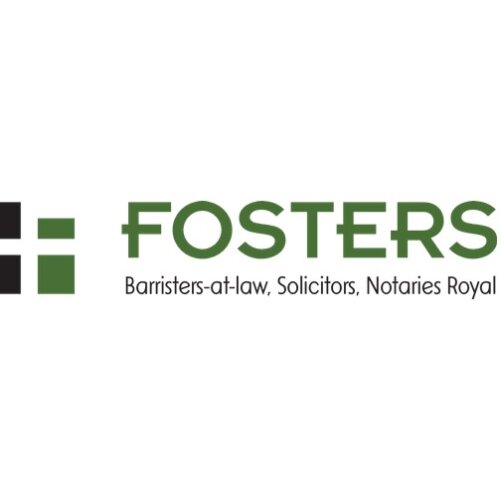Best Sanctions & Export Controls Lawyers in Castries
Share your needs with us, get contacted by law firms.
Free. Takes 2 min.
List of the best lawyers in Castries, Saint Lucia
About Sanctions & Export Controls Law in Castries, Saint Lucia
Sanctions and export controls are legal measures designed to regulate and restrict certain types of economic activities to protect national security, prevent illegal trade, and comply with international obligations. In Castries, Saint Lucia, these laws ensure that businesses and individuals do not engage in activities that violate the regulations established by the government or international organizations, such as the United Nations. This area of law plays an important role in combating money laundering, terrorism financing, and the illegal proliferation of weapons or dual-use goods. Compliance is not only a legal requirement but also crucial for maintaining the island's reputation as a responsible member of the international community.
Why You May Need a Lawyer
Legal challenges involving sanctions and export controls can be complex and carry severe consequences, including hefty fines, seizure of goods, and even imprisonment. Here are some common situations where you may require legal help:
- Your business exports or imports goods that may be subject to government restrictions
- You are unsure if a transaction with a foreign entity is compliant with current sanctions
- Your company has been notified of a potential breach of international or local sanctions
- You need advice on updating internal compliance programs and training
- You are facing investigations by authorities regarding your export activities
- You are involved in a dispute over goods detained by customs due to suspected export control violations
- You require due diligence before entering into contracts with foreign businesses
A lawyer specializing in this field can help you understand the regulations, minimize risks, respond to inquiries from regulatory bodies, and defend your interests in legal proceedings.
Local Laws Overview
In Saint Lucia, the primary laws and regulations concerning sanctions and export controls are influenced by both domestic statutes and international commitments. While Saint Lucia does not have comprehensive standalone legislation, its laws incorporate international sanctions imposed by the United Nations Security Council and other global agencies.
Key aspects include:
- Customs Controls: The Customs Department oversees the import and export of goods, enforcing bans or restrictions based on government policy or international obligations.
- Money Laundering (Prevention) Act: Provides the framework to prevent the financing of prohibited activities via trade, in line with international best practices.
- International Sanctions: Saint Lucia implements sanctions adopted by organizations such as the United Nations. These can restrict dealings with specific countries, entities, or individuals.
- Prohibited and Restricted Goods: Specific items, like arms, ammunition, and dual-use technologies, may be categorically banned or require special licenses to export or import.
- Financial Transaction Controls: Local financial institutions are required to block or report transactions that may relate to sanctioned entities or persons.
Violations of these laws can lead to criminal prosecution, forfeiture of goods, and severe penalties, making legal guidance essential for compliance.
Frequently Asked Questions
What are sanctions and export controls?
Sanctions are legal restrictions imposed to prevent trade or financial dealings with specified entities or nations. Export controls regulate the movement of certain goods, technology, or services to ensure compliance with national security and international agreements.
Do Saint Lucia laws apply to transactions with foreign entities?
Yes, local laws apply to any transactions that originate in Saint Lucia, even when dealing with foreign partners. If a transaction violates international sanctions adopted by the government, it can result in penalties.
Who enforces these regulations in Castries, Saint Lucia?
The Customs Department, the Financial Intelligence Authority, and the Royal Saint Lucia Police Force are the main agencies responsible for enforcing sanctions and export control laws.
Which goods are typically restricted?
Commonly restricted goods include arms, ammunition, explosives, dual-use technologies, certain chemicals, pharmaceuticals, and goods destined for countries or persons subject to international sanctions.
What happens if I violate sanctions or export control laws?
You may face a range of penalties, including fines, confiscation of goods, suspension of trading licenses, or imprisonment, depending on the severity of the violation.
Does Saint Lucia automatically adopt international sanctions?
Sanctions imposed by the United Nations Security Council are usually incorporated into Saint Lucia’s domestic law and become enforceable locally.
Can I get a license or permit for restricted exports?
Some restricted goods may be exported or imported under a special government-issued license. The process typically involves thorough review and vetting by regulatory authorities.
Are there local agencies that provide guidance on compliance?
Yes, the Customs Department and the Financial Intelligence Authority can provide guidance and clarifications regarding compliance requirements for businesses and individuals.
How do I verify if a foreign company is under sanctions?
You should consult the latest sanctions lists issued by the United Nations and update your records regularly. Legal counsel can help you conduct thorough due diligence before entering into contracts.
Is legal advice necessary if my business only deals with harmless goods?
Even when dealing with seemingly low-risk items, legal advice is vital to ensure your activities do not inadvertently breach restrictions or facilitate illegal trade, especially as laws and lists change over time.
Additional Resources
If you need support or clarification regarding sanctions and export controls in Castries, Saint Lucia, the following resources and organizations may be helpful:
- Saint Lucia Customs Department: Contact for inquiries about import and export restrictions, licensing, and compliance.
- Financial Intelligence Authority: For matters relating to financial transactions, money laundering, and the implementation of international sanctions.
- Ministry of Legal Affairs: For legal text, updates on relevant statutes, and official government policies on sanctions and export controls.
- Chamber of Commerce: Guidance for local businesses navigating compliance and international trade requirements.
- Private Law Firms: Many firms in Castries specialize in international trade, sanctions, and compliance advice.
Next Steps
If you require legal assistance regarding sanctions and export controls in Castries, Saint Lucia, here is how to proceed:
- Document all relevant information about your case or business activities, including contracts, invoices, and correspondence
- Reach out to a local lawyer with expertise in international trade, sanctions, and export controls
- Schedule an initial consultation to discuss your situation, compliance concerns, or any allegations against you
- Follow advice for immediate steps to mitigate any potential liability or resolve ongoing investigations
- Ensure you implement or update your internal policies and compliance programs under your legal counsel's guidance
Understanding and complying with sanctions and export controls is essential for individuals and businesses in Castries, Saint Lucia. By seeking proper legal advice and staying informed, you can protect your interests and avoid serious legal problems.
Lawzana helps you find the best lawyers and law firms in Castries through a curated and pre-screened list of qualified legal professionals. Our platform offers rankings and detailed profiles of attorneys and law firms, allowing you to compare based on practice areas, including Sanctions & Export Controls, experience, and client feedback.
Each profile includes a description of the firm's areas of practice, client reviews, team members and partners, year of establishment, spoken languages, office locations, contact information, social media presence, and any published articles or resources. Most firms on our platform speak English and are experienced in both local and international legal matters.
Get a quote from top-rated law firms in Castries, Saint Lucia — quickly, securely, and without unnecessary hassle.
Disclaimer:
The information provided on this page is for general informational purposes only and does not constitute legal advice. While we strive to ensure the accuracy and relevance of the content, legal information may change over time, and interpretations of the law can vary. You should always consult with a qualified legal professional for advice specific to your situation.
We disclaim all liability for actions taken or not taken based on the content of this page. If you believe any information is incorrect or outdated, please contact us, and we will review and update it where appropriate.










